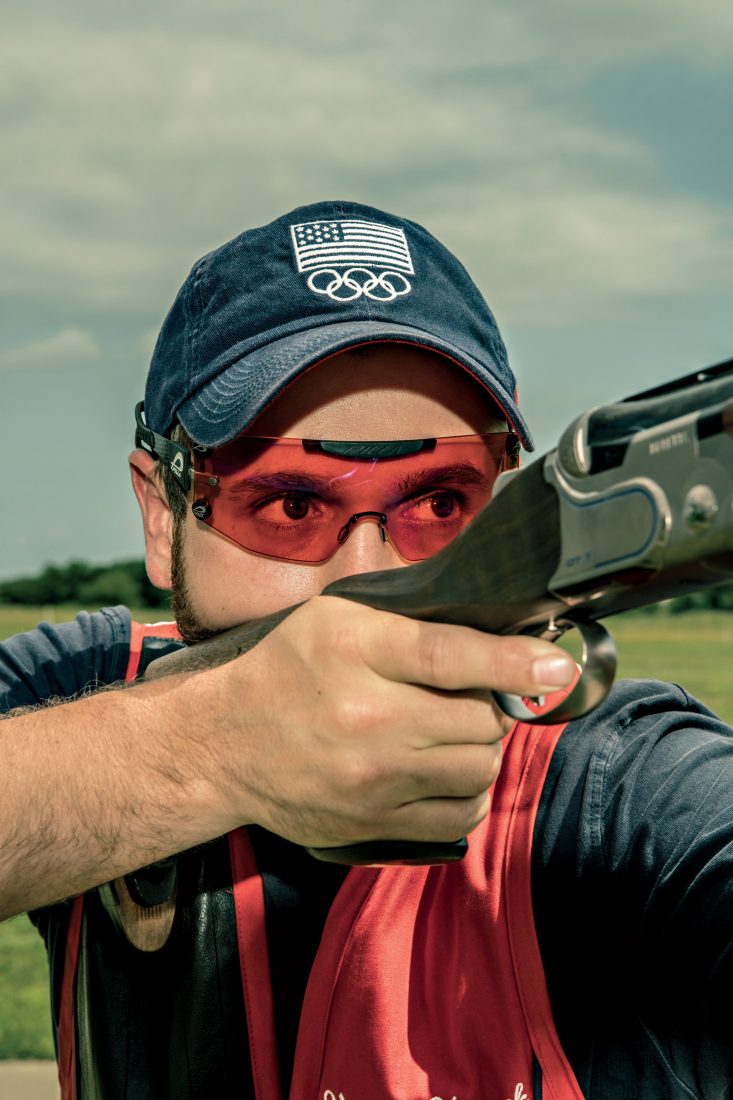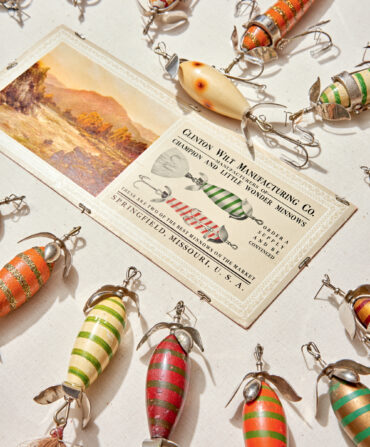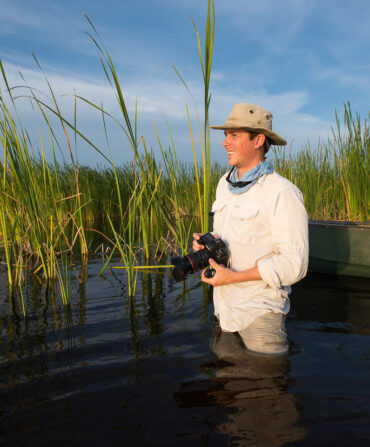All his life, there was only one dream. Vincent Hancock was the big kid with a fast arm and a competitive drive that set him apart on the diamond. Baseball was all that mattered, and he had parents who told him to always aim high.
Then the Eatonton, Georgia, native got a little older, and suddenly he wasn’t the tallest kid on the team any longer. His fastball still smoked, but others threw faster. There was disappointment, certainly, but dreams die more softly when you haven’t yet hit puberty. One question remained, however: There was still that competitive spirit, a rare kind of wild fire that friends and teammates and opponents would comment on for the next fifteen years. What to do with that?

Fredrik Broden
gg0416_sportingscene_02
Taking a break between rounds in Fort Worth
Hancock found the answer in his father’s battered Remington 1100 20-gauge shotgun. At first, he’d shoot a couple of rounds of skeet a week with his dad at Covington, Georgia’s South River Gun Club, a diversion from the baseball field. But once the spark fired, a new game was on. At age eleven, Hancock shot in his first local tournament. Soon afterward his father built a skeet range in the backyard. “I went from a pretty casual shooter to a completely obsessed competitor within a year and a half,” Hancock remembers. Shooting international, or Olympic, skeet, Hancock won his first Junior National Championship at fourteen. The next year, he won the Junior Grand Prix in Brazil. A few days after he turned sixteen, he placed on his first men’s Open World Championship team. That year he went on to shoot in seven international competitions, and medaled in them all—the first person to do so in any shooting discipline. Then came the grand prize: a gold in international skeet at the 2008 Beijing Olympics, the event’s youngest winner ever. Four years later, in London, he won his second gold medal, the first skeet shooter to repeat as an Olympic champion. And this August, in Rio de Janeiro, Hancock will close the breech on a Beretta DT11 and attempt to win his third consecutive gold—a feat unmatched in the history of shooting sports, be it with shotgun, rifle, or pistol.
“I know what to expect going in,” he says coolly. “I’m shooting well. I know what I want, and there’s a path to that goal.” One hundred fifty-seven trigger pulls stand in the way.
International skeet is a souped-up version of the standard clay bird fare, and not as popular as either American skeet or sporting clays. The clay targets are flatter and more durable, and are thrown at much faster speeds than American clay birds, with more challenging arcs and angles. Although international skeet is growing, Hancock says, “it’s so much harder than the rest of the shooting games that people are hesitant to give it a try. Even if you’re used to shooting American skeet, it’s like going from zero to a hundred miles per hour.”
Hancock can handle the g-forces. A typical match includes 125 targets, then two medal rounds of sixteen targets each. He was the first competitor ever to shoot a perfect 157.
“I can say this with all sincerity: Vinny is the greatest gun pointer that’s ever lived,” says Glenn Eller. Eller would know. A teammate of Hancock’s, he won a gold medal—in doubles trap—just a few days before Hancock won his in 2008. Eller will be in Rio to compete on his fifth Olympic team.
“If you’ve ever been in a car wreck,” Eller explains, “you know that feeling of looking back and seeing it all happen in slow motion. On the range, Vinny has this ability to slow everything down in real time. It’s a fast-paced sport and everything is happening very, very quickly. But he can analyze the angles and variables in his mind almost instantly. It’s uncanny.”

Fredrik Broden
gg0416_sportingscene_03
Hancock with his 2008 and 2012 gold medals.
Hancock’s prowess with an over-and-under caught the attention of the U.S. Army, which started recruiting him when he was a junior in high school. “The army gave me the freedom to put as much shot downrange as possible, a level of experience that a college shooting program couldn’t match,” Hancock says. He won both Olympic gold medals while he was a soldier in the Army Marksmanship Unit, and since his discharge he’s kept up the pace: He shoots five days a week, burning through 200 to 250 targets a day. Aiming for Rio.
But it’s not all about the gold rush for Hancock. At only twenty-seven years old, he’s looking beyond Brazil. Shooting sports have been an American tradition for centuries, he says, and he’d like to do his part to help them grow. “That’s where my head is right now,” he says. “I’m preparing for Rio, absolutely, and I plan to bring home that third gold medal. But I have a growing passion for bringing as many new shooters as I can into this sport.”
In a way, Hancock says, he’s trying to make up for a touch of youthful arrogance with a humility that comes from being an ambassador of his passion.
“Don’t get me wrong,” he says. “When I step on that line, I know that I am the best in the world, and my competitors know they have to come after me with everything they’ve got. But I’ve realized, too, that there are others out there who have the same aspirations I do, and my success has given me a responsibility to the sport. So I will never let you win, but I will tell you everything I know, and show you every trick in my book. Then it’s up to you. But this sport has given me my life. I owe it at least that much.”








